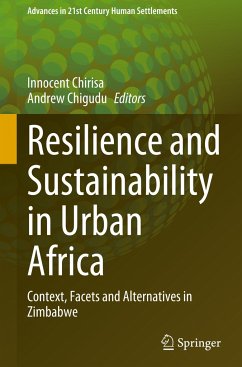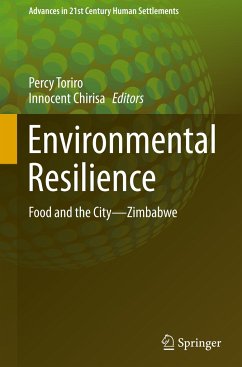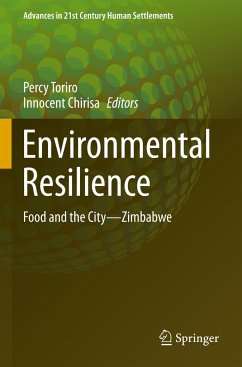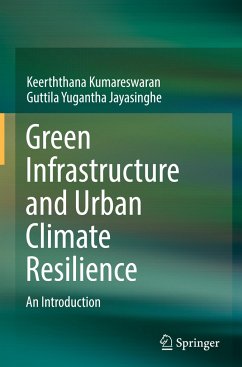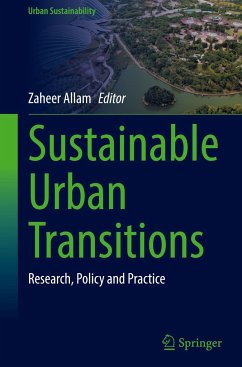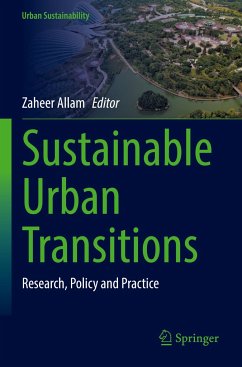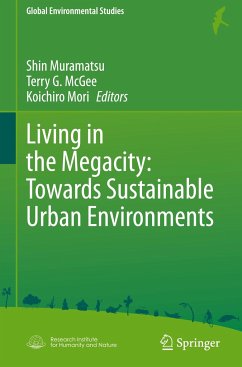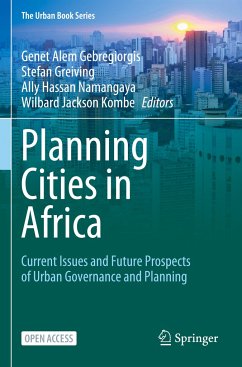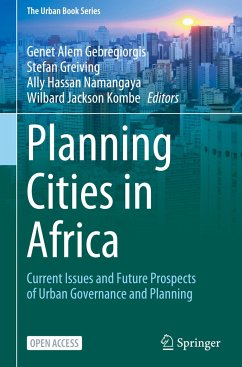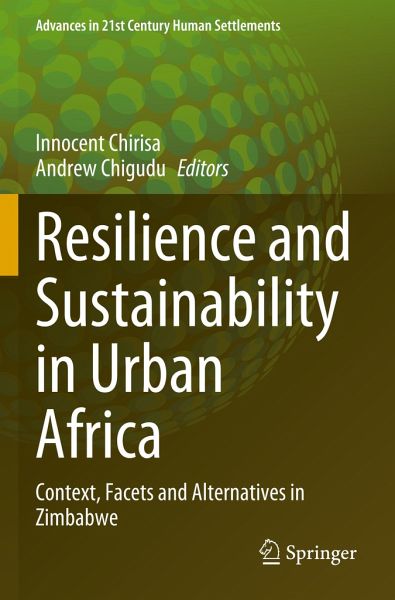
Resilience and Sustainability in Urban Africa
Context, Facets and Alternatives in Zimbabwe
Herausgegeben: Chirisa, Innocent; Chigudu, Andrew
Versandkostenfrei!
Versandfertig in 6-10 Tagen
65,99 €
inkl. MwSt.

PAYBACK Punkte
33 °P sammeln!
Resilience has become a very topical issue transcending many spheres and sectors of sustainable urban development. This book presents a resilience framework for sustainable cities and towns in Africa. The rise in informal settlements is due to the urban planning practices in most African cities that rarely reflect the realities of urban life and environment for urban development. Aspects of places, people and process are central to the concept of urban resilience and sustainable urban growth. It stems from the observation that urban vulnerability is on the increase in Zimbabwe and beyond. In h...
Resilience has become a very topical issue transcending many spheres and sectors of sustainable urban development. This book presents a resilience framework for sustainable cities and towns in Africa. The rise in informal settlements is due to the urban planning practices in most African cities that rarely reflect the realities of urban life and environment for urban development. Aspects of places, people and process are central to the concept of urban resilience and sustainable urban growth. It stems from the observation that urban vulnerability is on the increase in Zimbabwe and beyond. In history, disasters have adversely affected nations across the world, inflicting wide ranging losses on one hand while on the other hand creating development opportunities for urban communities. Cooperation in disaster management is a strategy for minimising losses and uplifting the affected urban settlements. The significance of urban planning and design in the growth and development of sustainableurban centres is well documented. Urbanisation has brought with it challenges that most developing countries such as Zimbabwe are not equipped to handle. This has been accompanied by problems such as overpopulation, overcrowding, shortages of resources and the growth of slum settlements. There need is to seriously consider urban planning and design in order to come up with contemporary designs that are resilient to current urban challenges. There are major gaps in urban resilience building for instance in Harare and the local authority needs to prioritise investment in resilient urban infrastructure.





